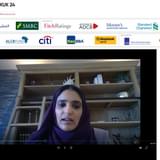Ezdan announced it has secured Board approval for raising up to US$2bn through a sukuk programme that could launch as early as May or June this year, when the firm said it plans to hit the market with a US$500mn Islamic note.
At the same time, the company also revealed its fiscal year 2015 results, reporting full year revenues jumping to QR1.55bn, up 13.2% from QR1.37 billion, with profits up 22%.
“We are satisfied with the solid financial position of the Group, which has witnessed tremendous growth in the pace of our record profitability. We are working to develop a realistic new investment operation to emphasise our presence in the various investment sectors, using several mechanisms, including the issuance of Islamic Shariah-complaint bonds or sukuk worth $2bn,” said Sheikh Dr Khalid bin Thani bin Abdullah Al Thani, Chairman of Ezdan Holding Group in a statement.
Sheikh Dr Al Thani said the company has been consulting with a range of Islamic finance experts on the sukuk, which would mark the company’s debut foray into Islamic bonds, and has secured all of the necessary approvals from the relevant authorities.
“The reality with many of these potential deals is that a company will get shareholder approval for it, but the deal will either fail to materialise or become a syndicated or bilateral deal instead because pricing is too high in public debt markets,” said Anita Yadav, Head of Fixed Income Research at Emirates NBD.
Yadav suspects this is one of the primary reasons why there is such an imbalance between the loan and bond markets at present, with the latter falling out of favour to the former. The first quarter of 2016 saw roughly US$4.5bn in combined sukuk and conventional bond issuances in the GCC region, dwarfed by the US$24.5bn in loans secured during the same period.
Total outstanding debt in the GCC system currently sits at around US$375bn, with roughly US$170bn in conventional bonds and sukuk.
While growth in the region has been subdued, the real estate sector in many GCC markets has seen mixed results.
Saudi Arabia had recorded real estate deals worth US$6.58bn during March, down 20% over the same period last year. A recently published JLL report on the UAE’s housing market suggests the region’s real estate sector is also cooling off. The materialisation rate of projects in 2015 was below expectations, with only 1,000 units delivered, compared to 7,800 delivered units in Dubai the year before. However, the same report concluded retail real estate development could be a boon for the UAE among other regions.
“While governments and banks are still on track to remain the biggest issuers and borrowers in the region, real estate is likely to occupy a bigger share of the borrowing, something that is largely driven by the World Cup in Qatar – where we forecast a long tail of development activity – and in anticipation of the Expo 2020 in Dubai, the UAE being the main driver there,” Yadav said.









